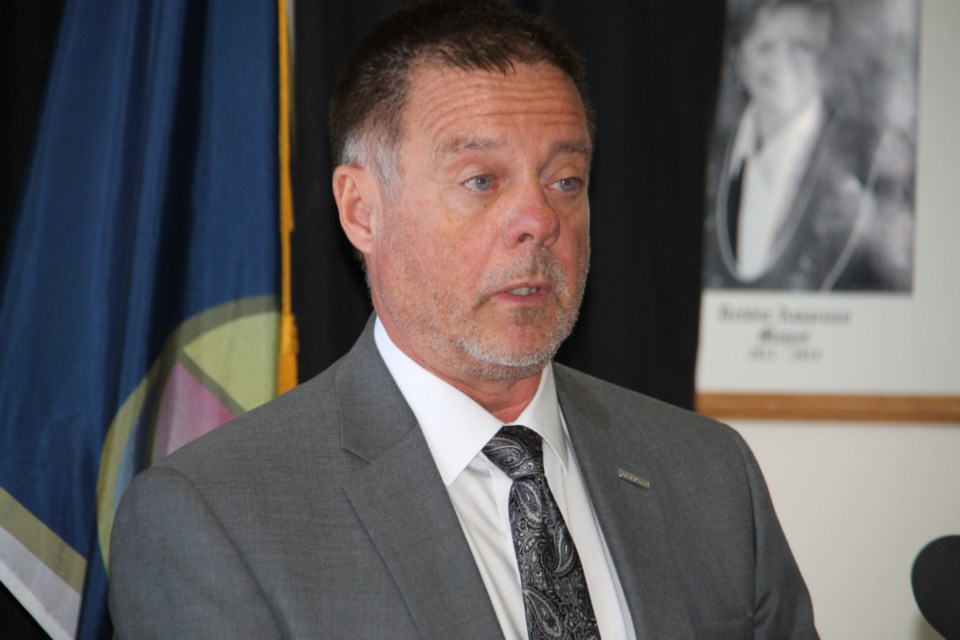“Standing still is never a recipe for success.”
That from Michael McQuade, Algoma Steel president and CEO, speaking to the Sault Ste. Marie Chamber of Commerce at its annual general meeting at the Marconi Cultural Event Centre Thursday.
McQuade delivered a speech designed to address concerns as Algoma plans to switch from coal-based steel production to electric arc steelmaking.
McQuade presented the upcoming switch as the latest in many transformations for Algoma over more than a century, the company having experienced two world wars, financial restructurings, multiple mergers, being publicly listed and privately held.
“Algoma has defined resilience. Major transformation is not new to us (including), mechanization, electrification, automation and digitization,” McQuade said.
Steelworkers have expressed concerns that jobs will be lost and workers displaced when the transformation from coal-based steel production to electric arc steelmaking - to be supported with up to $420 million in federal government funding - takes place.
“Sometimes introducing large-scale change is perceived as a threat. ‘(Workers are asking) will my job change? Will I have to retrain? Will there be job reductions? Will my pension be safe? Certainly those are conversations we continue to have. Some answers we know, and some we said we’d address when we have more information,” McQuade said.
Stating that companies that embrace change are those that survive, McQuade said “electric arc furnace steelmaking will make Algoma Steel a financially sustainable producer and employer for generations to come.”
McQuade focused on the perceived benefits of the change to electric arc steelmaking, stating it will create 500 construction jobs, more apprenticeships and co-op placements, highly skilled career opportunities and an increased annual steel output of 3.7 million tonnes, up from 2.8 million tonnes.
“The transition to electric arc steelmaking would significantly shrink our environmental footprint. It’s expected to reduce our greenhouse gas emissions by over 70 per cent. That would satisfy 11 per cent of the federal commitment for 2030 under the Paris Accord agreement..it will make Algoma Steel the leading producer of green steel in Canada and among the top suppliers in North America.”
Algoma to rely on scrap metal for steel production under the transformation, McQuade said “through scrap management...the quality of the steel that is made through an electric arc is every bit as capable as the integrated model. I think it’s on par. Low cost producers will survive.”
As far as job losses are concerned, McQuade said many Algoma employees are set to retire and that increased annual steel production of 3.7 million tonnes will lead to increased opportunities for growth.
McQuade said Algoma is geographically well placed to draw from sources of scrap metal in the U.S. Midwest as it moves away from coal-based steel production.
McQuade, a steel industry veteran, joined the Algoma Steel board of directors in Nov. 2018 and became CEO in March 2019.
Before joining the Algoma team, he served with Stelco for 35 years in a variety of leadership roles before becoming that company’s president, leading a financial restructuring and sale of the company while under CCAA protection, separating Stelco from U.S. Steel.




